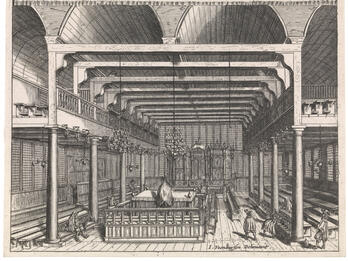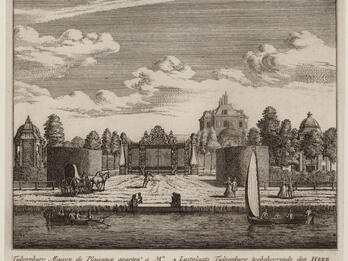Exemplar humanae vitae (A Specimen of Human Life)
Uriel da Costa
1640
But take heed, blind Pharisees, what you say! For though your hearts be full of malice and cunning yet, being without light, your tongues betray you. Suppose I was a Christian, what then would you say? It is plain you would call me an idolater and say that the true God from whom I had revolted would pass sentence of condemnation on me, together…
Related Guide
Early Modern Egodocuments
The early modern period witnessed a proliferation of Jewish "egodocuments"—first-person texts where authors reveal themselves.
Creator Bio
Uriel da Costa
Uriel da Costa was born in Oporto, Portugal, the descendant of a New Christian family. Baptized as Gabriel da Costa, between 1604 and 1608 he studied at the University of Coimbra and considered an ecclesiastical career, but he began to doubt his faith. In March 1614, he left with his parents and three of his brothers and moved to Amsterdam, where he was circumcised. From there he moved to Hamburg. Discovering that the Judaism of his time differed from biblical Judaism, da Costa wrote a brief statement in 1616 criticizing rabbinic Judaism and was subsequently excommunicated. A later work, denying the immortality of the soul, was burned, although several copies survived. Da Costa, unhappy with his social isolation, retracted his statements. With the publication of his book Examination of the Pharisees in Portuguese, he was excommunicated for a second time. In 1640, he publicly recanted and underwent a humiliating ceremony of reconciliation in the synagogue. In the aftermath, da Costa wrote an account of the event and then killed himself. Although the details of his own beliefs are unclear, he may have tended toward deism or natural religion.
You may also like
Memoir
Testimony before the Lisbon Tribunal of Inquisition

The Portuguese Synagogue in Amsterdam
Megilat evah (Scroll of Enmity)
Tractatus de intellectus emendatione (Treatise on the Emendation of the Intellect)



